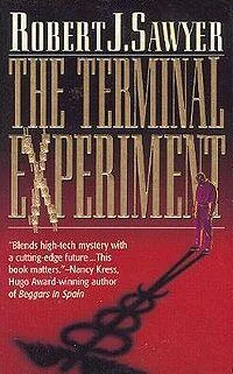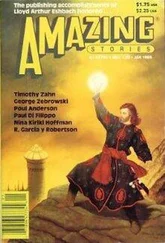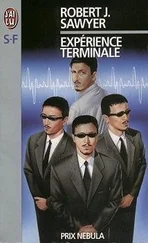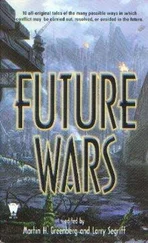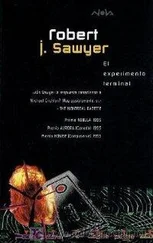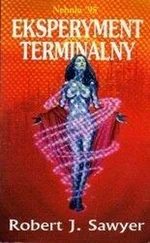Peter wondered what it would be like to see himself burned in effigy on TV.
It had been just over nine weeks since Cathy had told Peter about her affair. Things had remained strained between them throughout that period. But now it was necessary that they have a serious talk — a talk about a different crisis, a crisis from their past.
Today was Monday, October 10 — Canadian Thanksgiving. Both of them had the day off. Peter came into the living room. Cathy was sitting on the love seat, doing the New York Times crossword. Peter came over and sat next to her.
“Cathy,” he said, “there’s something I have to say.”
Cathy’s enormous eyes met his, and suddenly Peter realized what she was thinking. He’d made his decision, she thought. He was leaving her. He saw in her face all the fear, all the sadness, all the courage. She was struggling for composure.
“It’s about our baby,” said Peter.
Cathy’s face changed abruptly. She was confused now. “What baby?”
Peter swallowed hard. “The baby we, ah, aborted twelve years ago.”
Cathy’s eyes were moving back and forth. She clearly didn’t understand.
“Next week, my company will be making a public announcement about the soulwave,” he said. “At that time, some additional research will be revealed. But — but I wanted you to hear about it first.”
Cathy was silent.
“I know now when the soulwave arrives in a child.”
She read his manner, read his hesitancy. She knew his every gesture, his whole body-language vocabulary. “Oh, God,” Cathy said, her eyes wide in horror. “It arrives early, doesn’t it? Prior to when we — when we—”
Peter said nothing.
“Oh, God,” she said again, shaking her head. “It was the nineties,” she said, as if that summed it all up.
The nineties. Back then, the abortion issue, like most others, had been simplified to a ridiculous sloganeering level: “Pro-choice” — as if there were another faction that was anti-choice; “Pro-life” — as if there had been a group that was against life. No grays were allowed. In the Hobsons’ circle — educated, well-off, liberal Eastern Canada — pro-choice had been the only stance to take.
The nineties.
The politically correct nineties.
Peter shook his head. “It’s not clear,” he said. “We did it right around the time the soulwave would have first appeared.” He paused, not knowing what to say. “It might have been okay.”
“Or it might have been … might have been…”
Peter nodded. “I’m so sorry, Cathy.”
She chewed her lower lip, confused and sad. Peter reached out and touched her hand.
Hobson Monitoring had a standard database of medical journalists worldwide to whom electronic press kits were routinely sent. A few members of Peter’s senior staff argued that this particular release should also go to religion editors, but Peter vetoed that. He was still uncomfortable with the moral aspects of the discovery. Besides, everyone from the National Enquirer on down would be clamoring for interviews soon enough. An invitation to the press conference went out by E-mail and courier three days in advance of the actual event. Peter was uneasy about the wording of the invitation, but Joginder Singh, his PR person, was adamant that this was the correct approach:
Hobson Monitoring Ltd. invites you to attend a press conference on Thursday, October 20, at 10:00 a.m. in room 104 of the Metro Toronto Convention Centre. We will be unveiling a fundamental breakthrough in science. Sorry, folks — no hints until you get here. But we promise that this story will be front-page news around the globe.
Video linkups are available for those unable to attend in person; contact Joginder at Hobson Monitoring for details.
Several reporters did call, trying to sniff out whether the story would really be worth pursuing, or if this was just going to be the release of a new piece of hospital gadgetry. But no advance information was given out. Everyone had to wait until Thursday morning. And then…
About forty reporters showed up for the press conference — Hobson Monitoring had only once before gotten more, back when it had announced its first public share offering. Peter knew half the reporters by name: Buck Piekarz, medical correspondent for the Toronto Star , Cory Tick, his counterpart from the Globe and Mail ; Lianne Delaney from CBC Newsworld; a fat guy who covered Canadian stories for the Buffalo News ; a stringer for USA Today ; many more. The reporters helped themselves to fresh fruit and coffee while they chatted amongst themselves. They were surprised to not be receiving press kits up front, although Peter and Joginder assured them that full kits, including data disks and transcripts of Peter’s remarks, would be distributed as they exited. Several of the journalists present would videotape the conference, anyway.
Cathy had taken a vacation day to be there with Peter. At a quarter after ten, he made his way up to the front of the room. Cathy beamed at him, and, despite the butterflies in his stomach, he drew strength from her presence. “Hello, everyone,” he said, smiling at them all in turn, but holding a special, lingering smile on Cathy. “Thank you for coming out. Please forgive all the secrecy — I know it seems a tad melodramatic. But what we’re going to announce here today is something very special, and we wanted to be sure that responsible journalists heard about it first.” He smiled.
“Joginder, if you’ll dim the lights please? Thanks. Now, everyone, please watch the wall monitor. You’ll all be getting copies of the recording I’m about to play when you leave. All set? Run the demo, please, Joginder.”
The journalists watched intently as Peter narrated a slowed-down playback of the brain scans of Peggy Fennell’s death. Peter went into a fair bit of technical detail — these were, after all, medical correspondents. When the soulwave actually departed from Mrs. Fennell’s head a murmur moved through the audience.
“Play that last bit back again,” called out Piekarz from the Star . Peter signaled Joginder to do so.
“Exactly what is that?” asked another reporter.
Peter looked at Cathy, sitting in the front row. Her eyes were twinkling. He affected a shrug. “It’s a cohesive electrical field that leaves the body through the temple at the moment of death.”
“At the exact moment of death?” asked Delaney, the woman from Newsworld.
“Yes. It’s the final bit of electrical activity in the brain.”
“So — so it’s what?” said the woman. “Some kind of a soul?” She said the word offhandedly, as if a joke, giving her room to retreat in case she was making a fool of herself.
But in the weeks since Sarkar had first uttered that term, Peter had grown more comfortable with it. “Yes,” he said. “That’s exactly what we think it is.” He raised his voice, speaking generally to the room. “There it is, ladies and gentlemen: the first ever direct scientific recording of what may be a human soul leaving a body.”
A buzz erupted, everyone talking at once. Peter spent the next two hours answering questions, although some of the print reporters with early deadlines grabbed the press kits and exited almost at once. He made clear that his studies had yet to reveal exactly what happened to the soulwave after departure — it seemed to remain coherent, but there was still no proof that it didn’t dissipate shortly after leaving the body. He also stressed that very little data was available yet about the content or structure of the soulwave, and, in particular, about what, if any, meaningful information it contained.
But it made no difference. The idea of a soul was an archetype, universally grasped. People already were sure, in their hearts, of what the soulwave represented.
Читать дальше
